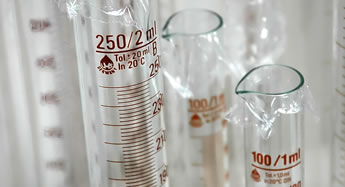Largest single Biomedical Laboratory in Europe opened by Queen
November 2016
The new £650 million Francis Crick Institute was opened by the Queen on 9 September 2016. The Institute, which is named after the Nobel Prize winning British scientist who co-discovered the structure of DNA in 1953, will be the largest single Biomedical Laboratory in Europe. It is hoped the Institute will help boost UK science and drive the UK economy.
The Institute is led by Chief Executive Sir Paul Nurse, a Nobel Prize-winning biologist and President of the Royal Society (leading to the building being nicknamed "Sir Pauls Cathedral"). It is a collaboration of six of the world’s most influential scientific organisations: Cancer Research UK; the Medical Research Council; the Wellcome Trust; University College London; Imperial College London; and King’s College London. When full, the Institute will be home to around 1250 scientists, doctors, engineers and computer experts working together in multidisciplinary teams.
With an annual budget of over £100 million, the Crick Institute's strategic vision is to "discover the biology underlying human health, improving the treatment, diagnosis and prevention of human disease, and generate economic opportunities for the UK." This vision will be achieved through multidisciplinary research into seven key focus area 'questions', oriented towards solving human health challenges such as cancer, heart disease, stroke and neurodegenerative diseases. These focus areas span a wide range of topics and include "How does a living organism acquire form and function?" and "How does the immune system know whether, when and how to react?" Other key focus areas include microbes and pathogens and the nervous system.
Due to the wide scope of these focus areas, the scientific work undertaken at the Institute will cover many specialisms including: ecology, cell biology and genetics, imaging, proteomics, and synthetic biology, among many others. The Institute will also benefit from access to high quality research services provided by dedicated Science Technology Platforms. These will give scientists access to state-of-the-art equipment, technical advice and instruction in areas including sequencing, computational biology, electron microscopy, flow cytometry, high throughput sequencing, mass spectrometry, and metabolomics.
The world class facilities and multidisciplinary expertise at the Francis Crick Institute should help achieve rapid advances in our understanding of health and disease. It is hoped that the Institute will tackle major scientific problems and generate solutions to the emerging human health challenges of the 21st century.
If you have any questions on this article or would like to propose a subject to be addressed by Synapse please contact us.


Josie Miller
Josie is a Trainee Solicitor in the Patents department.
"With an annual budget of over £100 million, the Crick Institute's strategic vision is to "discover the biology underlying human health, improving the treatment, diagnosis and prevention of human disease, and generate economic opportunities for the UK"."

